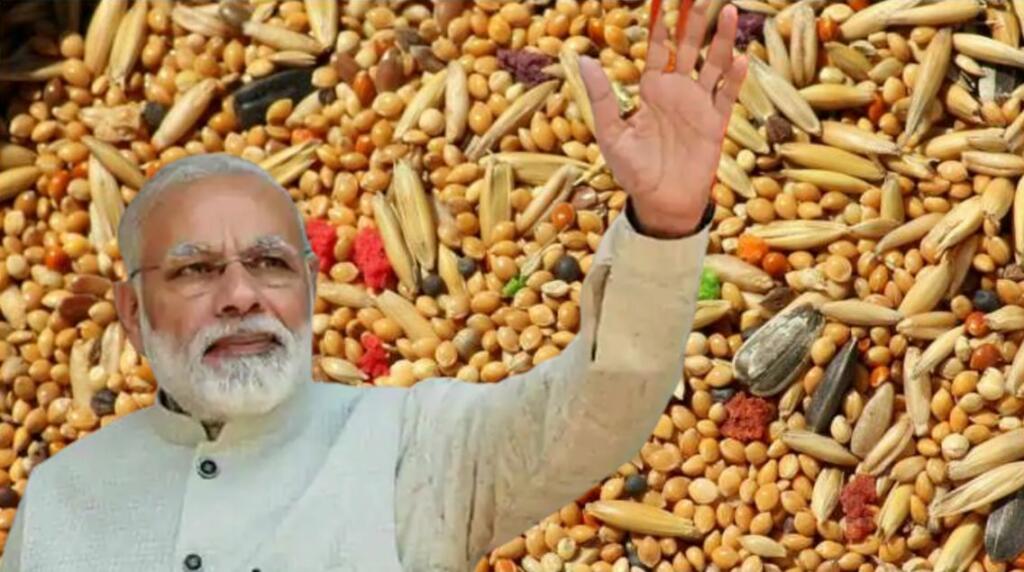For centuries, India used to consume primarily coarse grains like jowar (sorghum), bajra (pearl millet), and ragi (finger millet). However, after the green revolution, the crop cycle primarily moved to wheat and rice. Even the areas in the northwestern part of the country, where the rainfall and water level is low, started growing rice because it was being purchased by the government on MSP.
However, countries around the world are moving from wheat and rice to coarse grains given the health benefits. Given the rising global demand for coarse grains, India can become a major exporter of these grains and earn billions of dollars in foreign exchange. So, the government is incentivizing the farmers to grow coarse grains through farmer-produce organizations (FPOs).
In the last few years, Prime Minister Modi has laid a lot of emphasis on coarse grains. The Prime Minister touched upon the UN recognition of the year 2023 as the International Year of Millets and stressed the need to promote coarse grain as it will not only provide nutritious food grain but will also add to the income of the farmers.
The government has renamed jowar, bajra, ragi and other millets as “Nutri Cereals” to emphasize their nutritional value.
Also Read: Mid-Day Meal Programme : Its Launch, budget, Reach, Importance and Role of States in the Scheme
As per a report by The Indian Express, “with a goal to match the cultivation of nutri-cereals with local topography and natural resources, the government is encouraging farmers to align their local cropping patterns to India’s diverse 127 agro-climatic zones. Provision of seed kits and inputs to farmers, building value chains through Farmer Producer Organisations and supporting the marketability of nutri-cereals are some of the key interventions that have been put in place.”
Last year in June, Food and Public Distribution Minister, Piyush Goyal also emphasized the need to increase the production and procurement of coarse grains. “Time has come to revise norms to incentivise the farming and distribution of coarse grains in India,” said the minister.
The previous governments tried to ensure the availability of food in India while the real problem was nutrition. The hunger index is a nutrition index, and its name gives a very different connotation about what is the real problem that needs to be solved.
Throughout the world, countries are emphasizing nutrition, and the Modi government has also taken various steps to solve the nutrition problem.
Given the low nutritional value of today’s rice and wheat produced in the country, 2000 calorie intake is not possible with normal grains. To solve the nutritional intake problem, the government started POSHAN Abhiyan in March 2018. Now under this Abhiyan, the grains that are being distributed under various schemes such as food guarantees and mid-day meals will be bio-fortified to increase their nutritional value.
Read More: India is finally getting free of “2000 Calorie per day per person” criteria imposed by Sonia Gandhi
Last year, Prime Minister Narendra Modi released 17 bio-fortified varieties of eight crops which can increase the nutritional value of food staples by several folds. According to the Indian Council of Agricultural Research website, the following bio-fortified varieties have been released by PM Modi: The rice variety CR DHAN 315 which has excess zinc, the wheat variety HD 3298 which is enriched with protein and iron, and the DBW 303 and DDW 48 varieties, both of which are rich in protein and iron.
The POSHAN (Prime Minister’s Overarching Scheme for Holistic Nutrition) Abhiyan directs the attention of the country toward the problem of nutrition and tries to address it. In India, kids even in well-to-do families face nutrition problems due to a lack of education on diet and the low nutritious value of staple diet intakes like rice and wheat. An increase in production, procurement and consumption of coarse grains can solve India’s nutritional problem.
